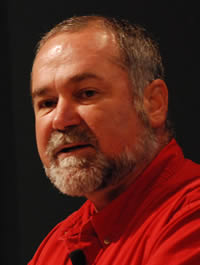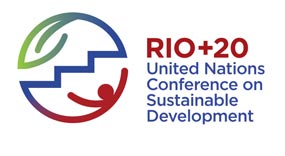Israel’s Escalating Rhetoric on Iran
By following Israel in lawlessness, the US is sullying its own constitution
by Abolala Soudavar
Veterans Today, 3 April 2012
In September of 2010, a group of the Friends of the Freer and Sackler Museums of Washington DC were visiting Iran. As a former member of the board of these museums, I naturally extended an invitation for the group to visit the Malek Public Library and Museum in Tehran, an institution that was endowed by my grandfather to the Shrine of the Eighth Imam. To coincide with this visit, the Malek Library had organized a small exhibition of religious texts—Islamic, Christian, Zoroastrian and Jewish—at the center of which stood a magnificent 18th century Torah scroll. The scroll had been recently donated to the Malek Library by the Chief Rabi of one of Tehran’s synagogues, and the exhibition was meant to honor this donation. The donors of the scroll were therefore invited to attend the opening of the exhibition.
The Chief Rabi, or Khakham as they are called in Iran, was accompanied by a junior Rabi who spoke English and served as his interpreter. When one of the visitors asked the Chief Rabi “for how long have you lent the scroll to the Library?” he jokingly answered that “contrary to the general belief that Jewish people cannot depart with their precious belongings, this was not a loan but a donation.” Furthermore, the junior Rabi revealed that he taught two days a week at the Holy City of Ghom, at a seminary of Talmudic studies organized for Shiite theology students. To the American visitors, it looked surreal: while the official propaganda in the US portrayed Iran as a country bent on exterminating the Jews, in Iran proper, Rabis were donating gifts to an institution that operated under the aegis of a Shiite shrine, joked around, and taught the Talmud to theology students in Ghom.
When this was related by my sister to Eugene Schulman, an antiquarian and bibliophile friend in Geneva, he took it upon himself to complement the Rabis’ generous gift with one of his own: he donated to the Malek Library a most rare volume, a copy of the first edition of the first translation of the Koran into English by George Sale, published in 1734.
Today, there are of course those who, like Eugene Schulman, despite being of Jewish faith, see through Israeli propaganda and prefer a cordial approach to animosity. There are also those who like the Freer and Sackler visitors—one third of whom were also of Jewish faith—want to have a first-hand opinion and visit Iran. But for a vast majority of the population at large, who remain at the mercy of the virulent Israeli propaganda machine, Iran has been so demonized that the threat of bombing, and the killing of thousands of innocent civilians, almost seems to be an accepted right of Israel!
Read full article with many links, photos, and several important videos.
Phi Beta Iota: While Israel may still attack Iran after the November 2012 elections, Iran is not a nuclear threat and both Israel and the USA know this. Right now the primary purpose of the Iran “threat” is to drive oil prices up so really evil bets made on oil futures pay off, and to distract the world from the dramatic expansions of the settlements–not that we oppose them, but in the absence of a legitimate coherent Palestinian state with no ghettos and no walls, we do not believe the US taxpayer should be paying a single cent for anything having to do with Israel (or Arab militaries).
See Also:
<Iran Israel nuclear> at Phi Beta Iota







